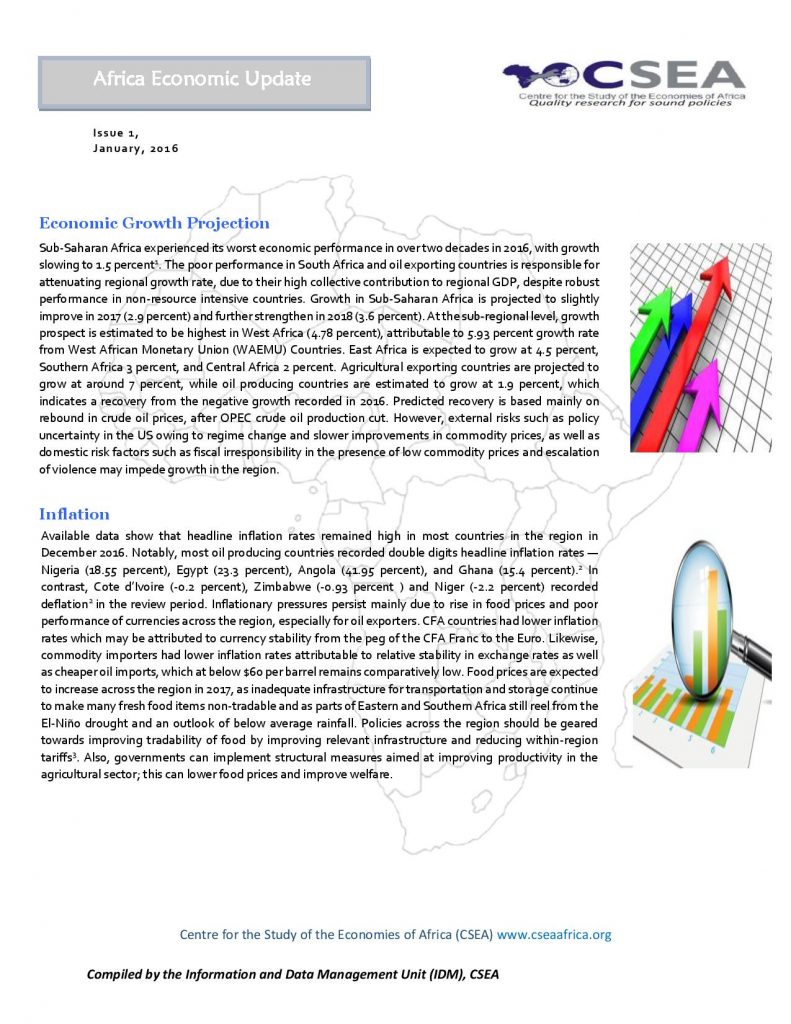Macroeconomic Report & Economic Updates

March 1, 2017
Africa Economic Update (Issue 1)
Sub-Saharan Africa experienced its worst economic
performance in over two decades in 2016, with growth slowing to 1.5 percent.
The poor performance in South Africa and oil exporting countries is responsible
for attenuating regional growth rate, due to their high collective contribution
to regional GDP, despite robust performance in non-resource intensive countries.
Growth in Sub-Saharan Africa is projected to slightly improve in 2017 (2.9
percent) and further strengthen in 2018 (3.6 percent). At the sub-regional
level, growth prospect is estimated to be highest in West Africa (4.78
percent), attributable to 5.93 percent growth rate from West African Monetary
Union (WAEMU) Countries. East Africa is expected to grow at 4.5 percent,
Southern Africa 3 percent, and Central Africa 2 percent. Agricultural exporting
countries are projected to grow at around 7 percent, while oil producing
countries are estimated to grow at 1.9 percent, which indicates a recovery from
the negative growth recorded in 2016.
